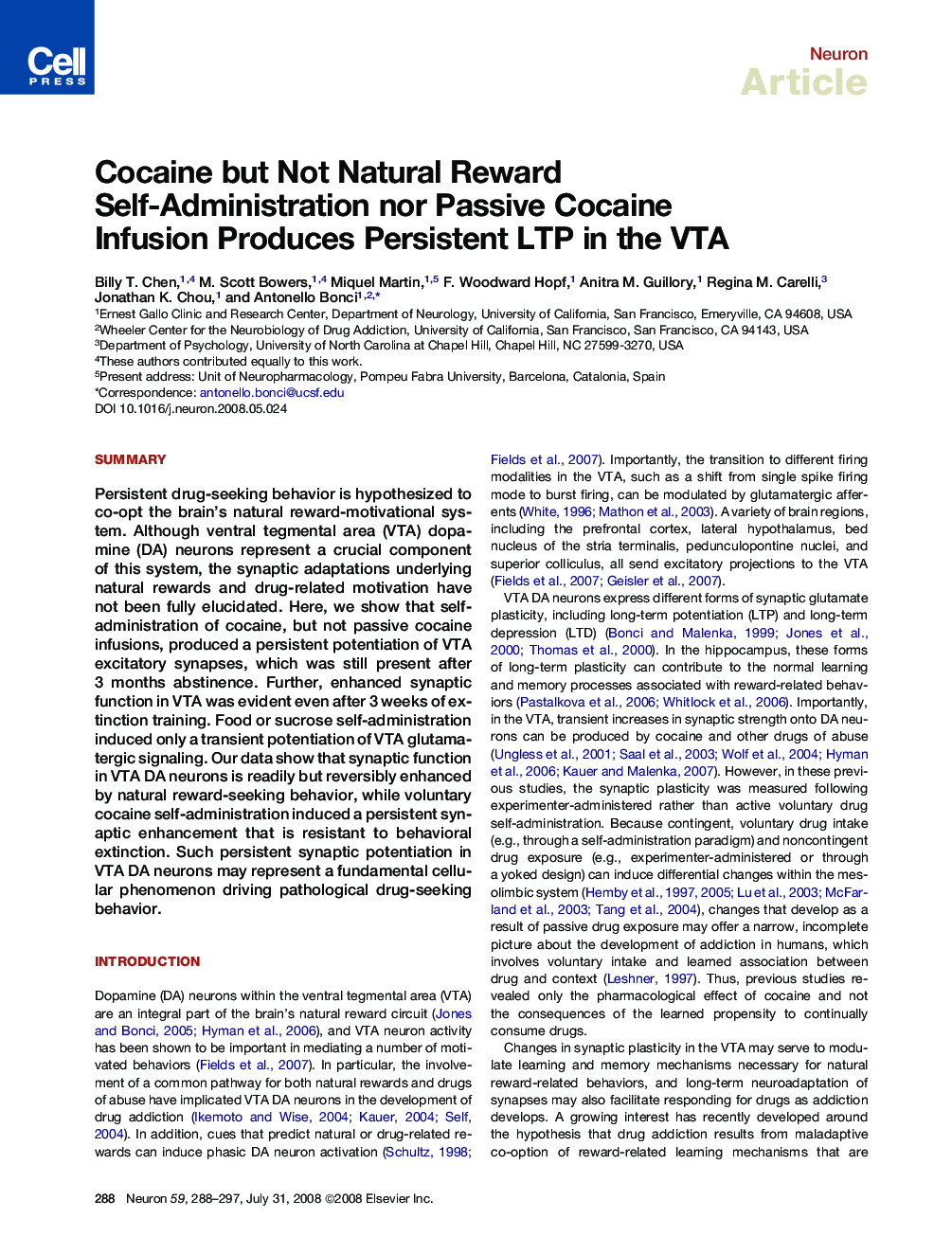| Article ID | Journal | Published Year | Pages | File Type |
|---|---|---|---|---|
| 4322208 | Neuron | 2008 | 10 Pages |
SummaryPersistent drug-seeking behavior is hypothesized to co-opt the brain's natural reward-motivational system. Although ventral tegmental area (VTA) dopamine (DA) neurons represent a crucial component of this system, the synaptic adaptations underlying natural rewards and drug-related motivation have not been fully elucidated. Here, we show that self-administration of cocaine, but not passive cocaine infusions, produced a persistent potentiation of VTA excitatory synapses, which was still present after 3 months abstinence. Further, enhanced synaptic function in VTA was evident even after 3 weeks of extinction training. Food or sucrose self-administration induced only a transient potentiation of VTA glutamatergic signaling. Our data show that synaptic function in VTA DA neurons is readily but reversibly enhanced by natural reward-seeking behavior, while voluntary cocaine self-administration induced a persistent synaptic enhancement that is resistant to behavioral extinction. Such persistent synaptic potentiation in VTA DA neurons may represent a fundamental cellular phenomenon driving pathological drug-seeking behavior.
